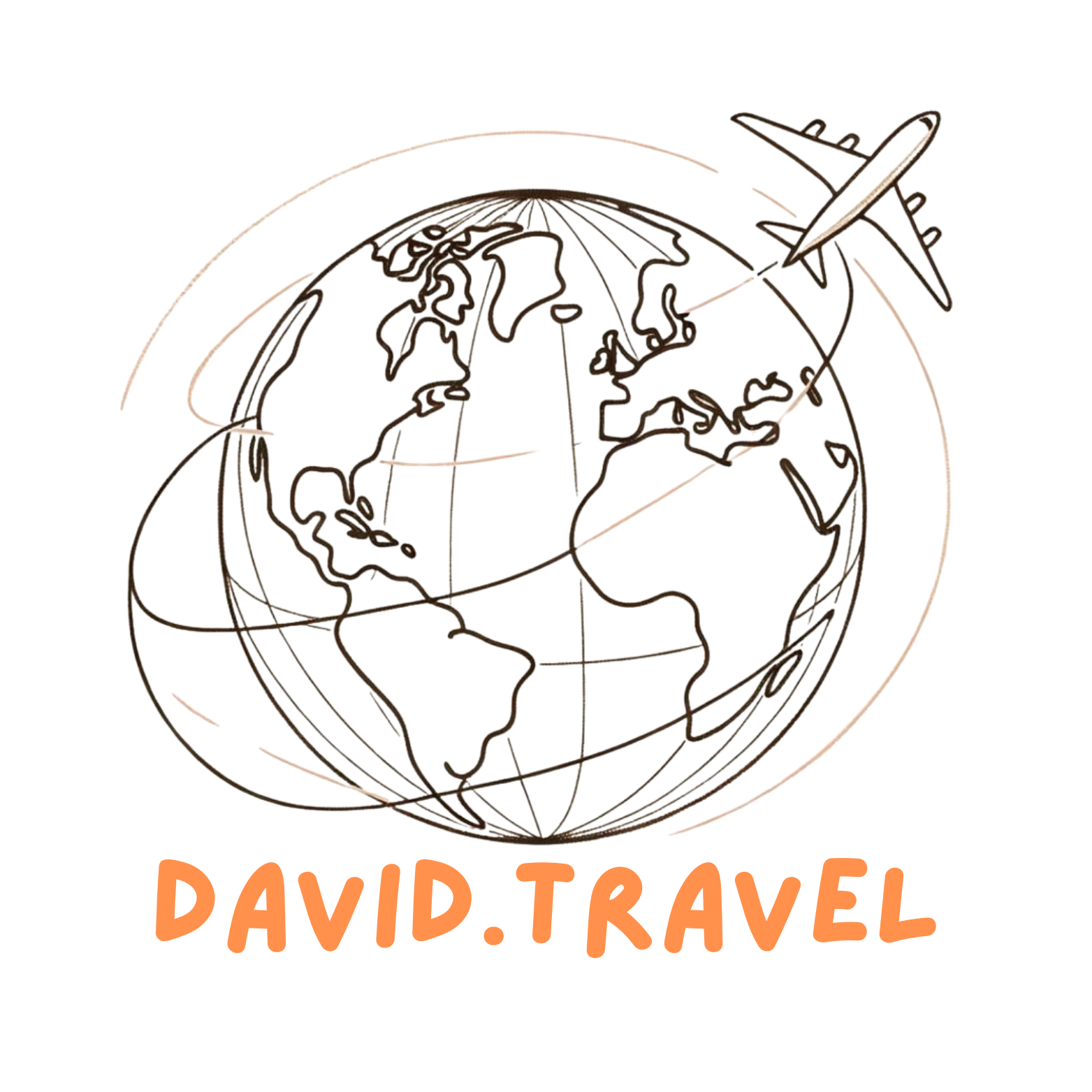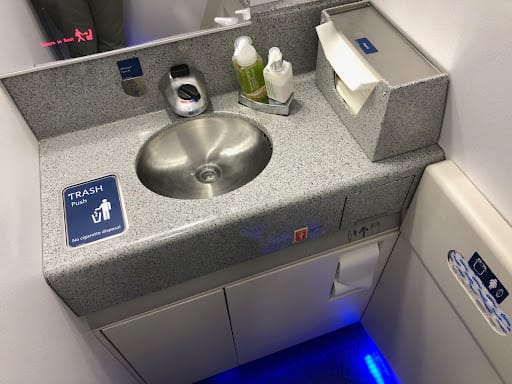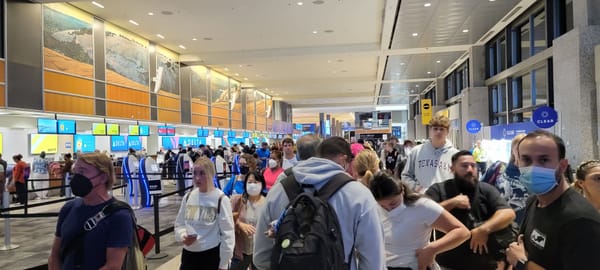[Pillar] How to Start a Digital Nomad Lifestyle: A Step-by-Step Guide
![[Pillar] How to Start a Digital Nomad Lifestyle: A Step-by-Step Guide](https://contenu.nyc3.digitaloceanspaces.com/journalist/907d1514-5d82-4f0b-9b34-88ca5847697a/thumbnail.jpeg)
Thinking about leaving your steady job to become a digital nomad? It sounds exciting, but there are many things to consider before you take the plunge. This guide will help you understand what it really means to live a life of travel and work. From picking a destination to managing your money, we’ve got you covered!
Key Takeaways
- Embrace the freedom of working from anywhere, but be ready for challenges like slow internet.
- Choose your first destination wisely based on cost and local culture.
- Pack smart: bring only what you need, especially tech and clothes.
- Finding remote work is crucial; know how to market yourself and avoid scams.
- Stay healthy and happy by exercising, eating well, and managing stress.
Why Quit Your Stable Job for a Life of Uncertainty?
The Allure of Working from a Beach
Imagine typing away on your laptop while the sun kisses your skin and the waves serenade you. Sounds dreamy, right? But let’s be real: the beach is not always the paradise it seems. You might find yourself battling sand in your keyboard or dodging seagulls eyeing your lunch.
The Reality of Unstable Wi-Fi Connections
You might think you can work from anywhere, but what happens when your Wi-Fi is slower than a snail? Here’s a quick look at the pros and cons:
| Pros | Cons |
|---|---|
| Freedom to travel | Unreliable internet |
| Unique experiences | Constantly searching for Wi-Fi |
| Flexibility in schedule | Work interruptions |
How to Explain This to Your Parents
Telling your parents you’re ditching your 9-to-5 for a life of uncertainty can be tricky. Here are some tips:
- Use buzzwords: Throw around terms like "digital nomad" and "remote work" to sound fancy.
- Highlight the benefits: Talk about how this lifestyle can lead to enhanced adaptability and personal growth.
- Reassure them: Let them know you’ll be fine, even if you’re living out of a suitcase.
The digital nomad lifestyle is not just about travel; it’s a chance for personal growth and new experiences.
So, why quit your stable job? Because who wouldn’t want to trade a cubicle for a beach chair? Just remember, it’s not all sunshine and rainbows. You might end up with a sunburn and a broken laptop!
Choosing Your First Destination: Because Why Not?

Factors to Consider: Cost, Climate, and Cockroaches
When picking your first spot as a digital nomad, you might want to think about a few things:
- Cost: Can you afford to live there without selling a kidney?
- Climate: Do you prefer sweating in the sun or shivering in the cold?
- Cockroaches: Are you okay with sharing your space with some creepy crawlies?
Here’s a quick table to help you visualize:
| Destination | Cost (Monthly) | Climate | Cockroach Level |
|---|---|---|---|
| Bali | $500 | Tropical | Low |
| Porto | $800 | Mild | Medium |
| Mexico City | $600 | Varied | High |
Popular Destinations for the Wannabe Nomad
So, where should you go? Here are some hot spots:
- Bali: Perfect for beach lovers and Instagram addicts.
- Lisbon: Great food and even better views.
- Chiang Mai: A haven for budget travelers.
The perfect digital nomad destination is out there for everyone. Whether it's living on the beach in Bali, wandering the romantic streets of Porto, or getting lost in the markets of Mexico City, the world is your oyster!
How to Avoid Tourist Traps and Actually Live Like a Local
To truly experience a place, try these tips:
- Ask locals for recommendations: They know the best spots, not the guidebooks.
- Use public transport: It’s cheaper and gives you a taste of daily life.
- Join local events: Festivals, markets, or even yoga classes can help you meet people.
Remember, life as a nomad means you might miss out on family events and birthdays back home. But hey, you can always send a postcard!
Packing: What to Bring When You Don’t Know Where You’re Going

Tech Essentials: Gadgets You Can’t Live Without
When you’re a digital nomad, your gadgets are your lifeline. Here’s a quick list of must-haves:
- Laptop: Your workhorse. Don’t forget the charger!
- Portable Charger: Because finding an outlet is like hunting for treasure.
- Noise-Canceling Headphones: To drown out the sound of your dreams crashing.
Clothing: From Flip-Flops to Winter Boots
Packing clothes is like playing a game of Tetris. You want to fit everything, but you also need to be practical. Here’s what to consider:
- Versatile Outfits: Think layers. You never know when you’ll need to dress for a beach party or a snowstorm.
- Comfortable Shoes: Your feet will thank you after a long day of exploring.
- Weather-Appropriate Gear: Check the forecast, or you might end up in flip-flops during a blizzard.
Health and Safety: First Aid Kits and Travel Insurance
Let’s face it, you might get a little too adventurous. Here’s how to stay safe:
- First Aid Kit: Band-aids, antiseptic wipes, and maybe a few snacks for good measure.
- Travel Insurance: Because life happens, and you don’t want to be stuck with a huge bill after a minor mishap.
- Local Emergency Numbers: Write them down. You never know when you’ll need to call for help.
Packing is an art, and like all art, it requires practice. Don’t be surprised if you forget something essential; it happens to the best of us!
Finding Remote Work: Because Money Doesn’t Grow on Trees
In the world of digital nomads, finding remote work is like hunting for treasure—exciting but often frustrating. You can’t just sit on a beach sipping cocktails and expect money to magically appear. Here’s how to get started:
Freelancing vs. Full-Time Remote Jobs
- Freelancing: You’re your own boss, but it can be a rollercoaster ride. You might have a ton of work one month and none the next.
- Full-Time Remote Jobs: More stability, but you might miss out on the freedom of being your own boss.
- Hybrid Options: Some companies offer part-time remote work, giving you the best of both worlds.
How to Pitch Yourself to Potential Clients
- Create a Portfolio: Show off your best work. Think of it as your digital resume.
- Network: Use social media to connect with potential clients. Don’t be shy!
- Tailor Your Proposals: Customize your pitch for each job. Generic proposals are like spam—nobody wants them.
Avoiding Scams: Too Good to Be True?
- Research: Always check the company’s reputation. If it sounds too good to be true, it probably is.
- Trust Your Gut: If something feels off, it probably is. Don’t ignore those red flags.
- Ask Questions: If a job offer seems sketchy, ask for more details. Legitimate companies will be happy to provide them.
Finding remote work is a journey, not a sprint. Stay persistent, and you’ll eventually find the right fit.
In summary, whether you choose to freelance or find a full-time remote job, remember that money doesn’t grow on trees. You’ll need to hustle, network, and stay alert to avoid scams. Happy job hunting!
Managing Finances: Or How to Not Go Broke
Setting Up an International Bank Account
When you’re living the digital nomad life, having the right bank account is crucial. Here’s what you need to know:
- Choose a bank with low fees: Look for banks that don’t charge you for international withdrawals.
- Consider online banks: They often have better rates and fewer fees.
- Keep an eye on exchange rates: Some banks offer better rates than others.
Budgeting: The Art of Stretching a Dollar
Budgeting is like a game, and you want to win! Here are some tips:
- Track your spending: Use apps to see where your money goes.
- Set a monthly limit: Decide how much you can spend and stick to it.
- Find free activities: Explore local parks, museums, or festivals that don’t cost a dime.
Taxation: Navigating the Legal Labyrinth
Taxes can be a headache, but you can manage them:
- Know your tax obligations: Research what you owe in your home country and where you’re living.
- Keep records: Save receipts and documents to make tax time easier.
- Consider hiring a tax professional: They can help you avoid pitfalls and save money.
Managing your finances is key to enjoying your travels. If you don’t keep track, you might find yourself broke and stuck in a place you don’t want to be.
Conclusion
In the end, being smart with your money can make or break your digital nomad experience. Remember, don’t travel with a George Costanza wallet; keep it light and simple. You’ll thank yourself later!
Staying Productive: Working While Everyone Else is on Vacation
Creating a Work Schedule That Works
When you’re living the dream of a digital nomad, it’s easy to forget that you actually have to work. Creating a solid work schedule is key to staying productive while everyone else is sipping cocktails on the beach. Here are some tips:
- Set specific work hours: Treat your work like a job, even if it’s from a hammock.
- Use timers: The Pomodoro technique can help you focus for 25 minutes, then take a 5-minute break.
- Prioritize tasks: Make a list of what needs to get done and tackle the hardest tasks first.
Tools and Apps for Maximum Efficiency
In this tech-savvy world, there are countless tools to help you stay on track. Here’s a quick list of must-have apps:
- Trello: Great for organizing tasks and projects.
- Slack: Perfect for team communication.
- RescueTime: Helps you understand where your time goes.
| Tool | Purpose | Cost |
|---|---|---|
| Trello | Task management | Free |
| Slack | Team communication | Free/Paid |
| RescueTime | Time tracking | Free/Paid |
Dealing with Distractions: Beaches, Bars, and Beyond
Let’s face it, working while surrounded by paradise can be tough. Here’s how to keep your focus:
- Find a quiet spot: Look for cafes or co-working spaces that aren’t packed with tourists.
- Limit social media: It’s easy to get lost in scrolling when you should be working.
- Set boundaries: Let friends know when you’re working so they don’t interrupt.
Remember, being a digital nomad means balancing work and play. If you can’t focus, you might end up being [the most annoying person](https://www.daviddottravel.com/5-ways-to-be-the-most-annoying-person-on-your-group-tour-2/) on your group tour, and nobody wants that!
Building a Social Life: Making Friends When You’re Always Leaving
Joining Digital Nomad Communities
Making friends as a digital nomad can feel like trying to catch smoke with your bare hands. You’re constantly moving, and so are your friendships. But fear not! There are communities out there just waiting for you to join. Here are some options:
- Online Forums: Websites like Nomad List or Reddit’s digital nomad threads.
- Meetup Groups: Check local listings for gatherings.
- Coworking Spaces: These are not just for work; they’re social hubs too!
Networking: It’s Not Just for Office Drones
Networking isn’t just for those stuck in cubicles. It’s your ticket to making friends on the go. Here’s how to do it:
- Attend Local Events: Workshops, talks, or even happy hours.
- Use Social Media: Platforms like Facebook and Instagram can help you find local events.
- Be Open: Talk to people in cafes, parks, or even on the beach. You never know who you’ll meet!
Balancing Work and Play: The Eternal Struggle
Let’s face it: working while traveling can be a juggling act. Here’s how to keep your social life alive:
- Set Boundaries: Designate work hours so you can enjoy your surroundings.
- Plan Social Activities: Schedule time to hang out with new friends.
- Stay Flexible: Sometimes, the best plans are the ones you didn’t make.
Making friends on the road is like trying to find a Wi-Fi signal in the jungle—sometimes it’s there, and sometimes it’s not. But when you do find it, it’s worth the effort!
Health and Wellness: Staying Fit When Gyms Are a Luxury

Exercise Routines You Can Do Anywhere
Staying fit while traveling can feel like a joke, especially when you realize that gyms are a luxury you might not have access to. But fear not! Here are some exercises you can do without any fancy equipment:
- Bodyweight Exercises: Push-ups, squats, and lunges are your best friends. They require no equipment and can be done anywhere.
- Running: If you find yourself in a beautiful place, why not go for a run? Just remember to check out local trails, like the Gainesville-Hawthorne State Trail for a scenic route.
- Yoga: All you need is a mat (or a towel) and some space. YouTube has tons of free classes to follow along with.
Eating Healthy: Local Cuisine vs. Fast Food
When it comes to food, you might be tempted to grab a burger from the nearest fast-food joint. But let’s be real, your body deserves better! Here’s how to make healthier choices:
- Explore Local Markets: Fresh fruits and veggies are often cheaper and tastier than processed foods.
- Cook Your Own Meals: If you have access to a kitchen, whip up some healthy dishes. It’s fun and saves money!
- Try Local Dishes: Many cultures have healthy traditional meals. Dive into the local cuisine instead of sticking to fast food.
Mental Health: Coping with Loneliness and Stress
Traveling can be exciting, but it can also be lonely. Here are some tips to keep your mind in check:
- Stay Connected: Use video calls to keep in touch with family and friends. It helps to hear a familiar voice.
- Join Local Groups: Look for meetups or clubs in your area. It’s a great way to make new friends.
- Set Boundaries: Make sure to have a work-life balance. Don’t let work consume your travel experience.
Staying healthy while traveling is not just about physical fitness; it’s about keeping your mind and spirit in good shape too.
In conclusion, being a digital nomad doesn’t mean you have to sacrifice your health. With a little creativity and effort, you can stay fit and enjoy your travels!
Legalities and Visas: Because Overstaying Isn’t an Option
Understanding Visa Requirements
Navigating the world of visas can feel like trying to solve a Rubik's Cube blindfolded. Each country has its own rules, and they can change faster than you can say "tourist trap." Here are some key points to keep in mind:
- Research the visa requirements for your destination before you pack your bags.
- Check if you need a tourist visa, work visa, or something else entirely.
- Look out for expiration dates; some visas are shorter than a Snapchat story.
How to Apply for Long-Term Stays
So, you’ve found your dream spot and want to stay longer than a week? Here’s how to make it happen:
- Gather all necessary documents, like your passport and proof of income.
- Fill out the application form—yes, the one that looks like it was designed by a sadistic bureaucrat.
- Submit your application and wait. Patience is a virtue, especially when it comes to visas.
Dealing with the Red Tape: A Survival Guide
Red tape can feel like a never-ending maze, but fear not! Here’s how to navigate it:
- Stay organized: Keep all your documents in one place. A folder or a digital app works wonders.
- Follow up: Don’t be afraid to check in on your application status. A polite email can go a long way.
- Be prepared: Sometimes, you might need to provide extra documents. Always have a backup plan.
Remember, overstaying your visa can lead to serious consequences. You might get banned from re-entering the country or face hefty fines. So, keep your passport and your sanity intact!
Sustainable Travel: Saving the Planet While Seeing It
Traveling is fun, but let’s not forget about our planet while we’re busy taking selfies at landmarks. Sustainable travel is a necessity for preserving our planet for future generations. Here’s how you can explore the world responsibly and inspire others to do the same:
Eco-Friendly Travel Tips
- Choose Green Transportation: Opt for buses, trains, or bikes instead of gas-guzzling cars.
- Stay at Eco-Conscious Hotels: Look for places that use renewable energy and recycle.
- Pack Light: The less you carry, the less fuel is needed for transport.
Supporting Local Economies
- Eat Local: Try street food or local restaurants instead of big chains.
- Buy Handmade Souvenirs: Support local artisans instead of mass-produced items.
- Participate in Community Events: Join local festivals or workshops to connect with residents.
Minimizing Your Carbon Footprint
| Action | Carbon Footprint Reduction |
|---|---|
| Use public transport | 30% |
| Eat less meat | 20% |
| Reduce plastic use | 15% |
Remember, every little action counts. By making small changes, you can help protect the places you love to visit.
So, as you plan your next adventure, think about how you can travel sustainably. After all, the world is a beautiful place, and we should do our best to keep it that way!
The Exit Strategy: When You’ve Had Enough of Paradise

Recognizing Burnout: Signs You Need a Break
Burnout can sneak up on you like a mosquito at a beach party. Here are some signs to watch for:
- Constant fatigue: You feel tired even after a full night’s sleep.
- Loss of interest: The thought of working from a beach no longer excites you.
- Irritability: You snap at your friends for no reason.
Planning Your Return: What’s Next?
So, you’ve decided to leave paradise. Now what? Here’s a quick plan:
- Set a timeline: Decide when you want to return.
- Find a place to stay: Look for a temporary home or a friend’s couch.
- Reconnect with old friends: They might have missed you more than you think.
Reintegrating into ‘Normal’ Life
Coming back to reality can be tough. Here’s how to ease back in:
- Get a routine: Establish a daily schedule to help you adjust.
- Stay connected: Keep in touch with your nomad friends; they understand your struggle.
- Find a new hobby: Dive into something that excites you, like cooking or painting.
Remember, it’s okay to take a break from paradise. Life isn’t always about sandy beaches and palm trees; sometimes, it’s about finding balance and happiness in the everyday grind.
If you're feeling overwhelmed by the constant hustle and bustle of paradise, it might be time to consider your exit strategy. Whether it's finding a quieter spot or planning your next adventure, knowing when to step back is key. For more tips and insights on travel, visit our website and discover how to make the most of your journeys!
Wrapping It Up: Your Digital Nomad Adventure Awaits
So, there you have it! You’re all set to ditch the 9-to-5 grind and embrace the wild world of digital nomad life. Sure, you might have to deal with some Wi-Fi issues and the occasional awkward conversation with a local who doesn’t speak your language, but think of the stories you’ll have! You’ll be sipping coffee in a café in Paris one day and working on a beach in Bali the next. Just remember, it’s not all sunshine and rainbows—there will be days when you miss your comfy bed or the simple joy of a stable internet connection. But hey, that’s part of the adventure, right? So pack your bags, grab your laptop, and get ready to live your best life on the move. The world is waiting for you, and it’s about time you answered the call!
Frequently Asked Questions
What are the benefits of being a digital nomad?
Being a digital nomad lets you travel and work at the same time. You can explore new places, meet different people, and enjoy a flexible schedule.
How do I choose a destination to work remotely?
Pick a place that fits your budget, weather preferences, and safety. Research popular spots for digital nomads and consider local culture.
What should I pack for a nomadic lifestyle?
Bring essential tech gadgets, comfortable clothes for different weather, and a small first-aid kit. Don’t forget travel insurance!
How can I find remote work opportunities?
Look for freelance gigs or full-time remote jobs online. Create a strong resume and reach out to potential clients directly.
How do I manage my money while traveling?
Set up an international bank account to avoid fees. Create a budget to track your spending and save for emergencies.
How can I stay focused while working in fun places?
Make a work schedule that suits you. Use apps to stay organized and find a quiet spot away from distractions.
How do I make friends as a digital nomad?
Join groups for digital nomads online or in person. Attend events and network to meet new people and build friendships.
What should I know about visas for traveling?
Research visa rules for the countries you want to visit. Learn how to apply for longer stays and be aware of any legal requirements.




